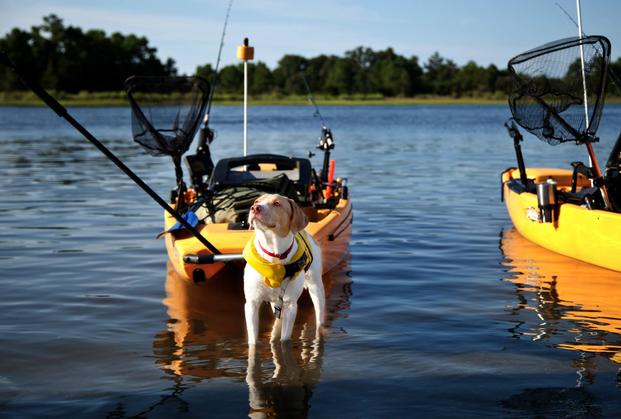For veterans, finding peace and purpose after service can be a challenge. Heroes on the Water (HOW) is changing that—one kayak at a time. This nonprofit combines kayak fishing with therapeutic programs to help veterans, first responders, and their families heal physically, mentally, and emotionally.
The Mission: How It All Began
Heroes on the Water was founded in 2007 by Jim Dolan and a small group of kayak fishing enthusiasts who were also veterans. They didn’t have a master plan—just a passion for their hobby and a desire to give back.
Initially, Dolan considered working with kids and schools. But after reaching out to Brooke Army Medical Center (BAMC), the focus shifted. They discovered that kayak fishing could support both physical and mental rehabilitation for wounded veterans.
One defining moment came at Blanco State Park. A participant recovering from traumatic brain injury was hesitant to paddle out. After a short time on the water, catching rainbow trout and simply being immersed in nature, his stutter disappeared for a brief but life-changing moment. “He told us he had been at BAMC for two years without progress. Now he had hope,” Dolan recalls. That moment confirmed the power of kayak fishing as a therapeutic tool.
Paddle. Fish. Heal.
Heroes on the Water’s tagline sums up its approach:
• Paddle: Kayaking gives participants low-impact exercise and a chance to immerse themselves in nature.
• Fish: Focusing on catching fish helps veterans quiet their minds and redirect thoughts positively.
• Heal: The combination of activity, camaraderie, and nature boosts well-being immediately and for days afterward.
Every event is structured to provide multiple ways to engage. Participants can kayak, fish from the shore, or simply relax, socialize, and enjoy meals together.
Why Kayak Fishing Works
Kayak fishing is more than a hobby, it’s a healing tool. HOW commissioned a study called Operational Early Impact with Dr. Shelby Sharpe from Texas State University. Using validated military-focused assessments, the study measured the program’s impact on:
• Stress Management: 95% of participants reported better coping skills.
• Self-Efficacy: 90% felt more confident in their abilities.
• Relationships: 91% experienced positive effects on personal connections.
Unlike other outdoor activities, kayak fishing allows for small, peaceful outings on “skinny water,” reducing sensory overload. Recurring events give participants consistent access to nature’s therapeutic benefits.
Volunteer-led Chapters
Found in communities across the U.S., these chapters provide wellness services to veterans, first responders, and families. No prior experience is needed.
Therapeutic Programs
Partnering with the VA and Department of War, these programs support veterans undergoing formal therapy. Events are tailored to each participant’s needs in collaboration with recreational therapists.
Family involvement is a priority. “To heal the veteran, the entire family should be part of the journey,” Dolan says. Including families helps address challenges from service, reintegration, or traumatic experiences.
Stories of Impact
Every HOW outing leaves a lasting impression. Veterans report feeling calm, happy, and more connected to others. Relationships with spouses, children, and coworkers improve. Recurring participation strengthens bonds and builds confidence.
Some stories stand out:
• Visually Impaired Veterans: Programs in Denver help participants navigate the water while building independence.
• Female Veterans: Special events support women in their healing journey.
• Trauma Recovery: Veterans experience breakthroughs that carry beyond the day’s event.

Getting Involved: Practical Steps
Veterans and families can join HOW events for free, with all equipment provided.
Volunteers can guide kayaking, coordinate events, provide photography or social media support.
The Bottom Line
Heroes on the Water isn’t just about fishing. It’s about rebuilding lives, creating community, and giving veterans and their families a path to healing. Through paddle, fish, and heal, HOW proves that a simple kayak outing can have a profound impact, offering hope, connection, and a renewed sense of purpose.
Even a single day on the water can spark long-term benefits for veterans, families, and first responders.

(Information provided by Laura Lindsey, Development Director of Heroes on the Water. Contact: [email protected])
Story Continues
Read the full article here



